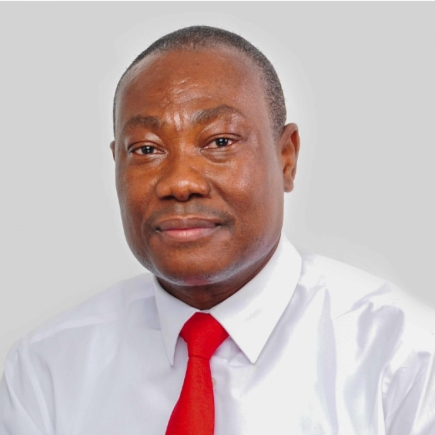
Lack of legal mining sites identified as main driver of galamsey – Minerals Commission
The Chief Executive of the Minerals Commission, Martin Ayisi, has pointed to the lack of legal mining sites as the primary cause of illegal mining (galamsey) in Ghana.
Speaking before Parliament’s Government Assurances Committee, Mr Ayisi proposed several solutions to tackle the issue.
These include re-issuing cancelled licenses and redistributing explored areas, steps he said are crucial to curbing galamsey and protecting the livelihoods of millions across the country.
Mr Ayisi emphasised that providing legal avenues for miners to operate is key to solving the galamsey crisis.
“The fundamental cause of illegal mining is the lack of a place for the miners to work,” he said.
He stressed that until this problem is resolved, efforts to combat galamsey will not succeed. He then outlined four strategies to create legal opportunities for small-scale miners.
One solution, according to Mr. Ayisi, is for large-scale mining companies such as AngloGold, Newmont, and Goldfields to release portions of their concessions for small-scale miners.
Another is to re-issue mining licenses that were cancelled due to non-performance.
Additionally, explored areas surrendered by mining companies should be made available to small-scale operators.
Lastly, some large-scale companies may voluntarily give up parts of their land, which can then be allocated for small-scale mining.
“These measures would give miners legal options and reduce the need for illegal mining,” Mr Ayisi explained.
He added that the Minerals Commission, with support from Parliament, has started funding the Geological Survey Department to explore new areas for small-scale mining, though he acknowledged that this process takes time.
Mr. Ayisi also discussed the socio-economic impact of galamsey, which directly affects around three million people across 13 regions in Ghana.
He described the wide network of workers and businesses connected to small-scale mining sites, including miners, transporters, and women selling food and goods.
He noted that the closure of illegal mining sites has a far-reaching ripple effect, with entire communities losing their livelihoods.
“When a mining site shuts down, it’s not just the miners who suffer. Farmers, transporters, and traders are all impacted,” Mr. Ayisi said.
He emphasized the need to differentiate between legal small-scale mining and illegal mining, which is already banned.
He also explained that addressing illegal mining requires collaboration between district mining officers and local communities.
While the Minerals Commission inspects sites and reports illegal activities, it is up to district assemblies and security forces to enforce the law.
Mr. Ayisi commended the political will of both major political parties in addressing the issue.
He acknowledged the commitments made by the government and the opposition to support the Geological Survey in identifying new areas for small-scale mining.
